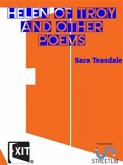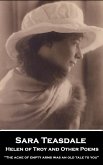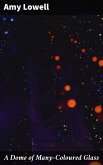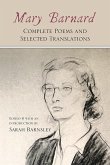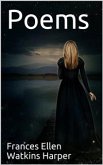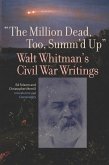1928. Teasdale's work has always been characterized by its simplicity and clarity, her use of classical forms, and her passionate and romantic subject matter. In 1918, she won the Columbia University Poetry Society Prize (which became the Pulitzer Prize for Poetry) and the Poetry Society of America Prize for Love Songs. She later committed suicide. In addition to new poems, this book contains lyrics taken from Rivers to the Sea, Helen of Troy and Other Poems, and one or two from an earlier volume. See other titles by this author available from Kessinger Publishing. Fluent, straightforward, constant, reflective. Sara Teasdale's poems croon and radiate passion.
Bitte wählen Sie Ihr Anliegen aus.
Rechnungen
Retourenschein anfordern
Bestellstatus
Storno




